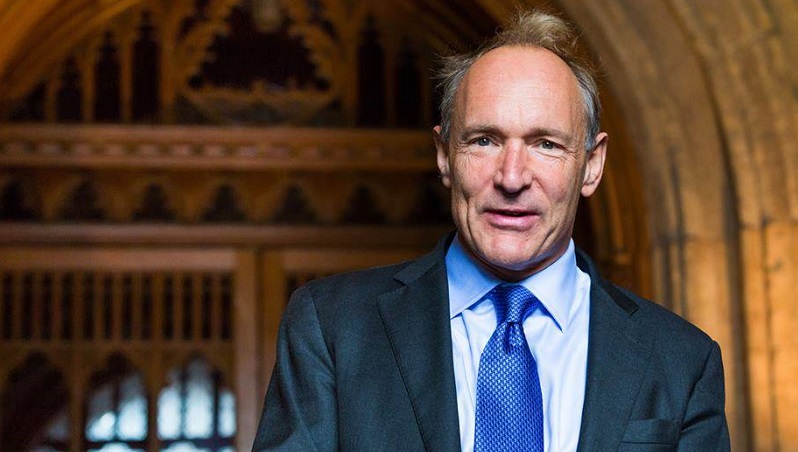With powerful hardware working together with an industry-leading camera system and intuitive AI experiences, everyday tasks have never been easier and faster
Web’s inventor Tim Berners-Lee wants to give users control of their internet data

Tim Berners-Lee, the man credited with having invented the World Wide Web, says he plans to reinvent the internet — by helping users to regain ownership of their private internet data, through his new startup Inrupt and its Solid platform.
Speaking at the 38th Gitex Technology Week in Dubai yesterday, Berners-Lee said the initial dream of the World Wide Web as a tool that would fuel democracy had now faded and been replaced instead by a place full of click-bait articles and fake news.
“A lot of people are finding that they’re not so happy about it,” he added.
But above all, privacy has become a major concern, with the Cambridge Analytica scandal, which erupted earlier this year, being the tipping point, he said.
It’s why he’s embarked on what many he says have told him is “an impossible project”, after unveiling his startup Inrupt and its data decentralisation solution, Solid last week.
Solid will give users the power to choose where their private internet data is held, by allowing apps to integrate with the platform.
Currently a user’s data is held and owned by various tech firms when they as users engage with their respective services — be these Google, Facebook or Amazon.
However, with Solid, someone for example who wants to share their photos with work colleagues can choose where to put the data, while his colleagues could choose what kind of app to use to access the photos.
Berners-Lee points out that the platform will only gain acceptance by getting the various internet firms that hold users’ private data, to agree to certain standards on the use of a common interface. Any app would then have to be written so that the Solid server could use it.
Sound impossible? Berners-Lee doesn’t think so. After all this is exactly how the World Wide Web got going — by having various software providers agree to adopt certain standards so that all devices can access the internet.
He describes the Solid server as “just an empty scrabble board”. “The scrabble board doesn’t know what it’s being used for, but it doesn’t matter. The apps write in there and slowly this whole thing we call linked data spreads like a crossword being filled in,” he explained.
Data will also be able to link with other data and developers will also be able to build apps without first having to harvest massive amounts of data.
This will provide users with what Berners-Lee and others initially intended the internet to be — a place to share information freely.
“It’s a big ask, because we’re asking people to build apps to use as new APIs, but in a way for developers it’s exciting too, because once they’ve learnt the site’s API then they can write data to any Solid (data) store,” he said.
This, he said will help breaks down the silos of where data is stored — which he reckons will “turn the privacy issue on its head”.
Berners-Lee admits that getting developers and tech companies that store personal data, to use the service will involve “a lot of hard work”.
But he said recent developments are encouraging. He pointed to the agreement in July between Google, Facebook, Twitter and Microsoft on setting up a new open-source, service-to-service data portability platform (through the Data Transfer Project).
Part of the agreement includes developing a common format so that users can use their data on other apps and platforms if they so want. This, he said is already a small victory for users, as it will allow them more control over their data.
It’s why there’s still a twinkle visible in Berners-Lee’s eyes — visible even at the back of the hall he’s talking in at the expo.
It’s likely because he’s visibly excited to be back in the world of startups. Said Berners-Lee: “I haven’t been in a startup since, the 80s but it’s good to be in that world as well.”
Ventureburn editor Stephen Timm is in Dubai as a guest of Gitex Future Stars.
Feature image: Facebook

